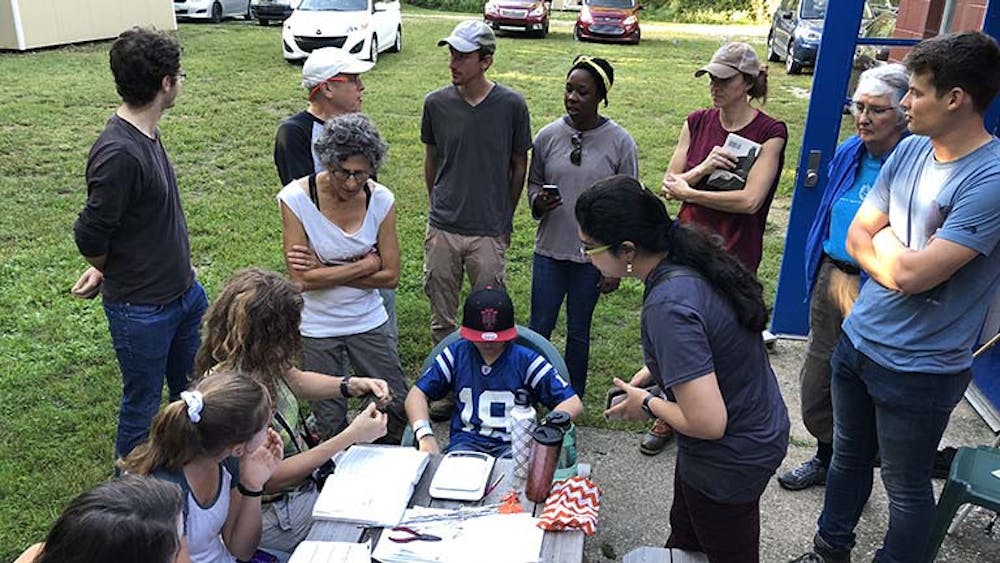Last semester, Adam Duncan became the first person at IU to receive a doctorate from the Intelligent Systems Engineering program.
The program is a doctorate offered by the Luddy School of informatics, Computing, and Engineering.
Duncan completed the doctorate through a fellowship provided by the Naval Surface Warfare Center in Crane, Indiana, where he works.
“I had thought about getting a Ph.D. for quite a while, and I thought the IU ISE program was the perfect opportunity to go back to school and get my degree,” Duncan said.
Through the Crane Ph.D program, Duncan was still able to work for them and pursue his degree full-time.
Duncan's coming to IU solidified a relationship between IU and Crane, said professor Martin Swany, an adviser to Duncan.
“The relationship between Crane and IU, which is something we wanted for a long time, is now really growing, and Adam has been a key catalyst to that,” Swany said. “He’s blazed a trail that others will follow."
Adam Barker is another graduate student who is working for Crane while pursuing a doctorate in Intelligent Systems Engineering at IU. He spoke highly of Duncan, whom he worked with in class.
“His ability to look deeply into the problem is inspiring,” Barker said. “He can really understand multiple perspectives.”
Duncan said his interactions with the students and faculty were the most rewarding part of the program. He mentioned professor Andrew Lukefahr, an assistant professor of Intelligent Systems Engineering at IU, as an inspiration.
“I feel like I’ve grown a lot in terms of my research focus and communication skills from his guidance,” he said.
Swany said Duncan as a student.
“He’s amazingly motivated and an incredible hard worker,” Swany said. “Very sharp. Very diligent.”
Duncan said he found it challenging to choose what to study at IU.
“The most challenging part was trying to find a research topic that was both relevant enough, interesting enough and unique enough,” Duncan said.
Duncan’s focus was on the security of hardware devices known as field-programmable gate arrays — an area of study that Swany said has become increasingly popular in recent years. Called FPGAs for short, they are hardware devices that execute specific functions.
Once they are configured the devices, unlike a program running in a general-purpose processor, focus on one specific task. The devices do it quickly and efficiently, Swany said.
Swany also said that as the world has become increasingly dependent on FPGAs, the security of these devices has become very important.
“As you connect everything, you have to worry about vulnerabilities in everything that’s connected,” Swany said.
That’s where Duncan’s research comes in. He studied how to protect such systems from technological attacks.
Duncan continues to work at Crane and said he has applied the skills he learned from his studies at IU to his job.
“I’m able to look at problems outside my specific area, help generalize the problem and brainstorm creative solutions to those problems,” Duncan said.






